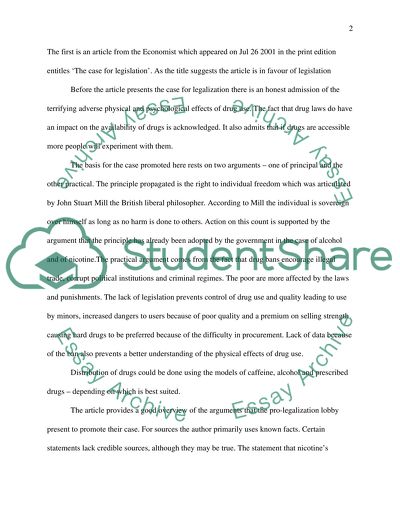Cite this document
(“Legalization of drugs Essay Example | Topics and Well Written Essays - 1500 words”, n.d.)
Retrieved from https://studentshare.org/miscellaneous/1528683-legalization-of-drugs
Retrieved from https://studentshare.org/miscellaneous/1528683-legalization-of-drugs
(Legalization of Drugs Essay Example | Topics and Well Written Essays - 1500 Words)
https://studentshare.org/miscellaneous/1528683-legalization-of-drugs.
https://studentshare.org/miscellaneous/1528683-legalization-of-drugs.
“Legalization of Drugs Essay Example | Topics and Well Written Essays - 1500 Words”, n.d. https://studentshare.org/miscellaneous/1528683-legalization-of-drugs.


